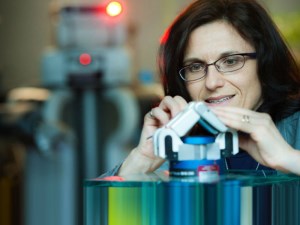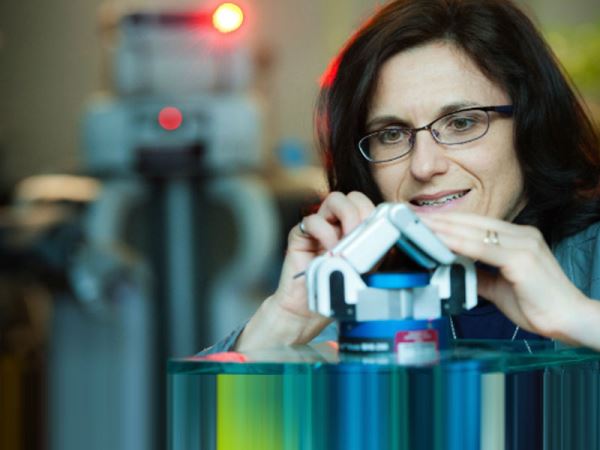As new generations of robots are stepping into our lives and workplaces, the field of social robotics is becoming increasingly prevalent.
Unlike the robots that have become a familiar sight in factories and warehouses, which have only limited contact with humans, social robots are designed to interact with us.
Social robotics is an emerging field that studies the design and impact of robots mixing with people in public spaces, workplaces and our homes.
Social robots can not only solve problems and undertake complex tasks, they have emotional and social intelligence that allows them to collaborate with people.
Using artificial intelligence (AI), they are essentially mobile machines that exhibit social behaviours, such as recognising, following and assisting their owners and even engaging in conversation.
And they are capable of making a real difference in people’s lives.
Social robots are now making an impact in a broad range of areas including healthcare, aged care and education.
They are now being used to help children to recover from physical injuries by encouraging them to exercise again and are also being used to inspire aged care residents to remain active.
Understanding human feelings
Health researchers also believe social robots can play a major role in interacting with dementia patients and can be used to alleviate loneliness.
In coming years researchers are confident social robots will be able to understand human feelings and provide advice in much the same way a friend might.
Brisbane-based Australian Centre for Robotic Vision (ACRV) is a world leader in this field.
Formed in 2014, ACRV is the world’s first research centre specialising in robotic vision. The ACRV team is on a mission to give robots the ability to see and understand – and to change people’s lives for the better.
ACRV and a team of Australia’s leading female robotics researchers will host a special social robotics forum at the International Conference of Robotics and Automation (ICRA) to be held in Brisbane from next Monday and running until May 25.
Harnessing the full potential of social robots
The full day forum, to be held next Tuesday (May 22), will explore the future and benefits of social robots including in health, aged-care, manufacturing, and retail.
The forum features three of Australia’s leading female robotics researchers:
- The founder of social robotics in Australia, Professor Mary-Anne Williams from The Magic Lab at UTS
- Professor Elizabeth Croft, Dean of Engineering from Monash University
- ACRV Chief Operating Officer Dr Sue Keay who leads the development of the centre’s social robotics program
“As new generations of robots are developed that interact with people in public spaces we need to consider the impact these technologies have on society,” says Dr Keay.
“The Australian Centre for Robotic Vision is focused on finding the best ways to harness the full potential of social robots and amplify the benefits they bring to our lives, workplaces and the world we live in.”
At the ICRA 2018 social robotics workshop, the researchers will explore the future of social robotics and how to “best navigate the transdisciplinary challenges such robots will present.”
ICRA, the premier international forum for robotics researchers, is being held in Australia for the first time, in recognition of the world-leading work being done by Australians in robotics.
More than 2,500 of the world’s leading robotic and automation experts, including 300 Australians, are expected to attend the conference at the Brisbane Convention and Exhibition Centre.
For more information visit http://icra2018.org/social-robots/
Or for more information on the conference and to purchase tickets for ICRA visit https://icra2018.org


